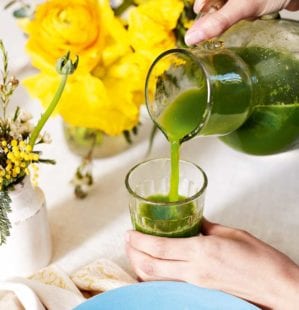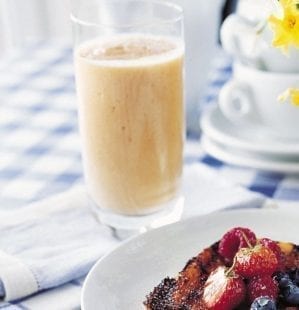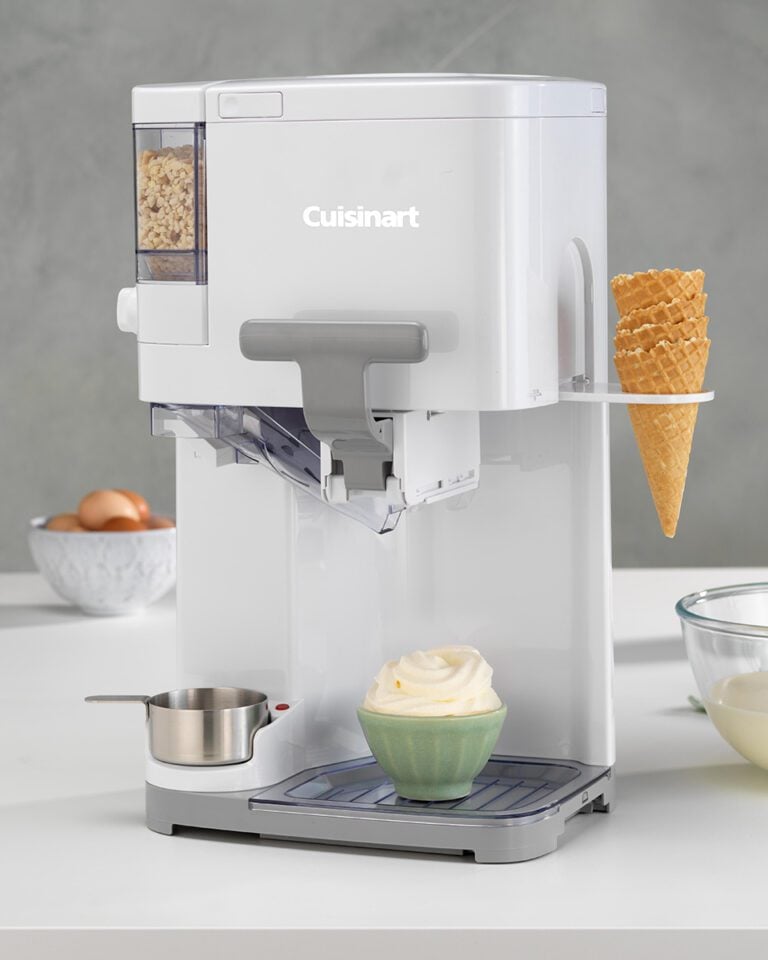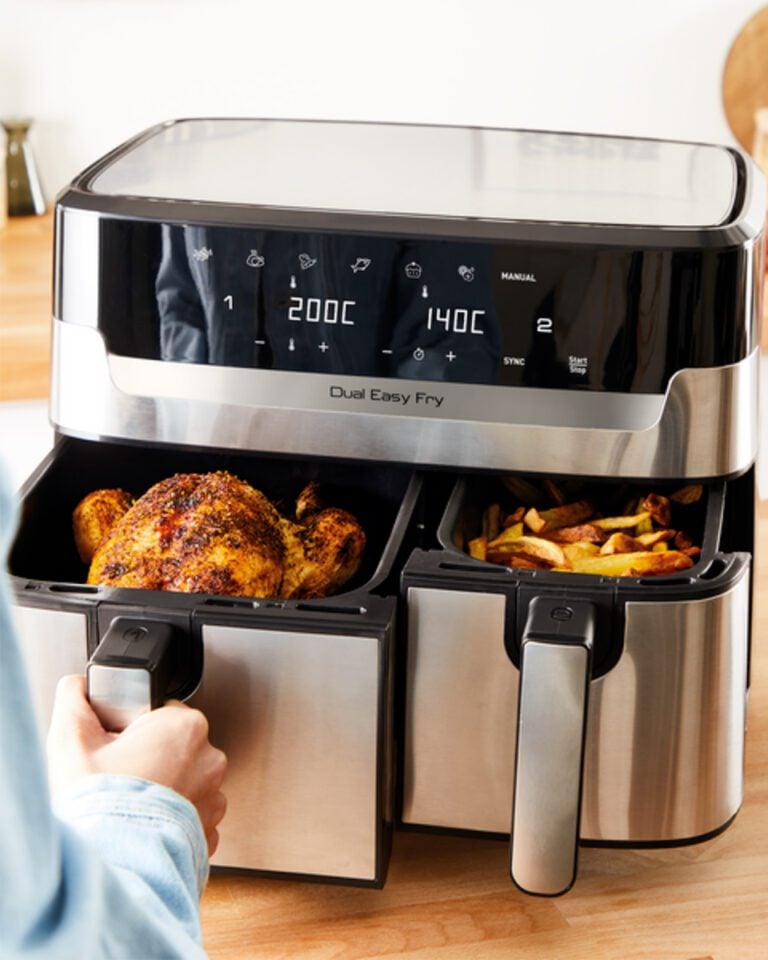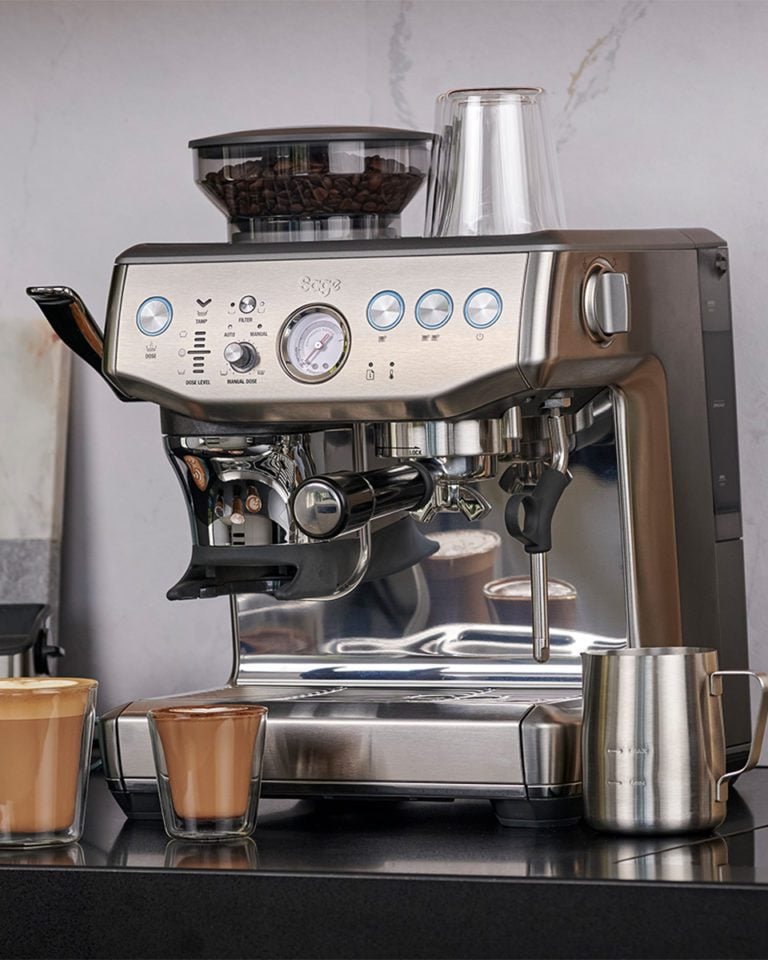delicious. reviews: Nama J2 Cold Press Juicer
Cold press juicers are all the rage with those looking to up their daily intake of fruit and veg, but they don’t come cheap. Our reviewer Aggie MacKenzie takes the Nama J2 Cold Press Juicer for a spin, which promises low speed batch juicing as well as commercial grade high speed power blending, to see if it’s worth its price tag.
We may earn a commission when you click on a link on our review pages. Read more about how delicious. reviews appliances.
Available from UK Juicers (RRP£570).
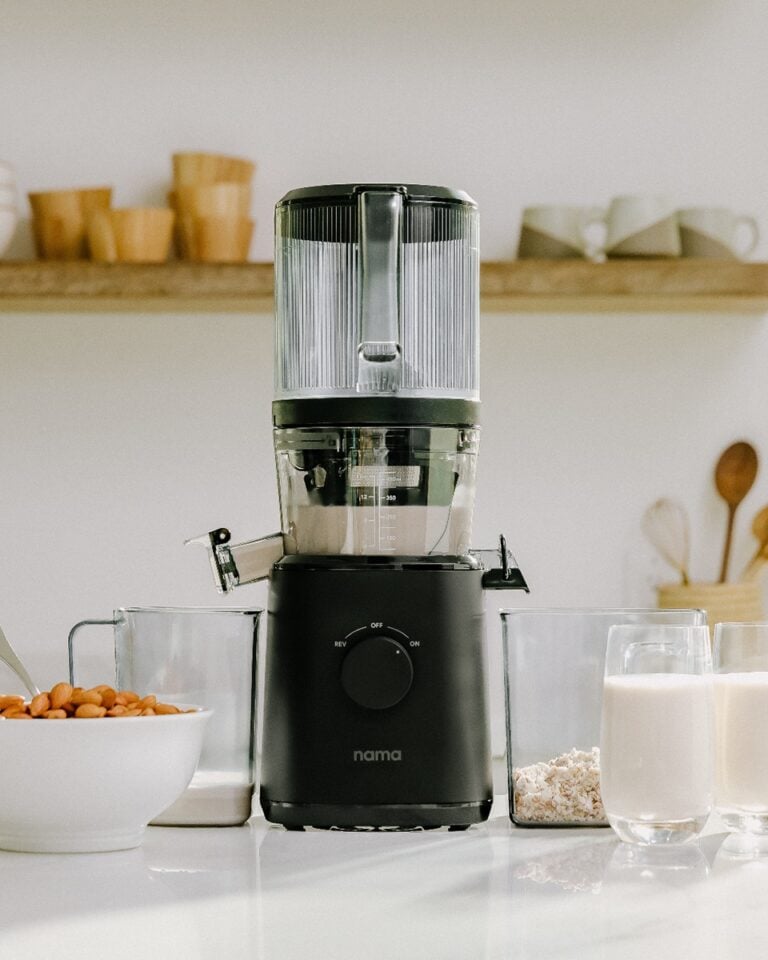
I’d not come across cold press juicers before, although the technique was invented in the 1930s by a Dr Norman Walker, nutritionist and raw food advocate. The key feature of a cold press juicer is its slow-moving hydraulic presses, which crush the produce against teeny perforations in the strainer. The slower process means that less heat and friction are generated, which opens up the cell membranes to release and preserve the nutrients and enzymes. This model has a second strainer for making smoothies.
What’s good about it?
All the juicers I’ve used in the past retain the waste pulp in the machine and it’s a faff having to break off every couple of batches to empty the machine. This one spews the waste out of a side spout as you go, so if for example, you have a load of apples or pears at harvest time, you can happily carry on juicing without interruption.
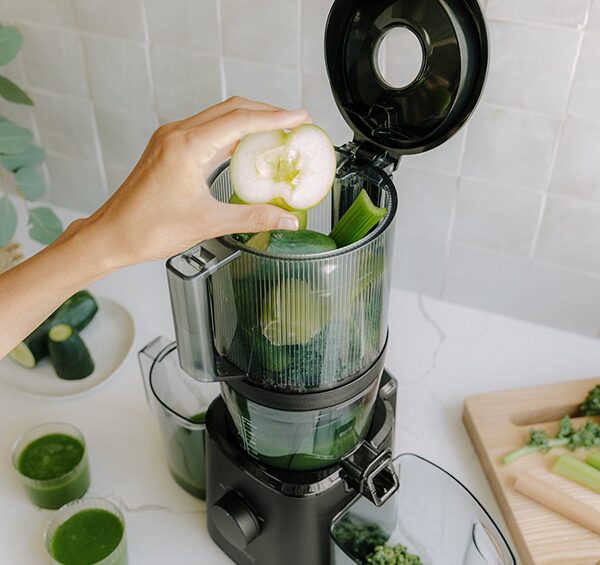
The waste pulp is extremely dry – every last drop of liquid containing the vitamins, minerals and phytonutrients (aka antioxidants, the disease-fighting, immune-boosting chemicals) really does seem to be squeezed out from your fruits and veg, rewarding you with rich colours and flavourful juice. I noticed that even after sitting for a day in the fridge, the juice doesn’t separate – presumably this is down to the slow pressing. The instructions are good and clear, the components feel robustly made and are easily cleaned (by hand only). The Nama can also be used to make plant-based ‘milks’ from nuts such as almond and cashew.
What’s not so good about it?
The cost – it’s a whopping 570 notes, which seems to be around the going rate for a cold presser. You’d have to be a serious, enthusiastic and regular juicer – or maybe immuno-compromised – to justify that sort of spend.
It’s bulky, so if you’re short on kitchen cupboard space it’s maybe not going to earn a place on your essentials list of gadgets. Throwing away the pulp feels oddly extravagant, so unless you keep pigs or make your own compost, it might feel like a waste. You also have to core your apples and pears and cut them into chunks (which you generally don’t have to do on a regular juicer). And because cold-pressed juice is low in fibre and sits high on the glycemic index, it wouldn’t be that great for keeping you full.
More creative, sustainability-conscious cooks could perhaps use the pulp in cakes or to bulk out savoury dishes.
Overall verdict
It certainly is a treat to have (and give guests) my favourite freshly squeezed carrot, apple and ginger juice. I became very fond of the Nama and would probably use it enough, but to be honest it would have to be a gift as I couldn’t justify shelling out that sum. It would be a great (and generous) present for a very health-conscious friend or relative or for someone who had a weakened immune system that needed a fresh juice boost.
Available from UK Juicers (RRP£570).
Subscribe to our magazine
Food stories, skills and tested recipes, straight to your door... Enjoy 5 issues for just £5 with our special introductory offer.
Subscribe
Unleash your inner chef
Looking for inspiration? Receive the latest recipes with our newsletter
